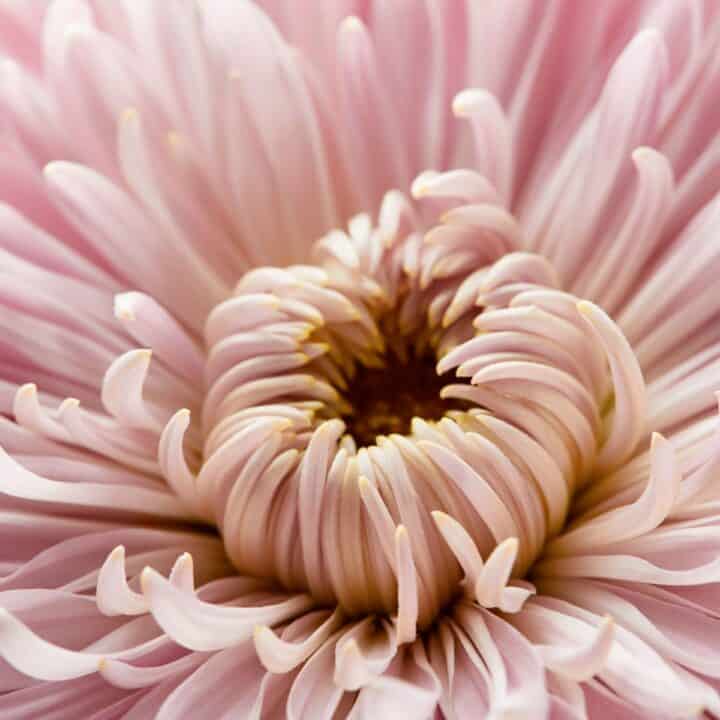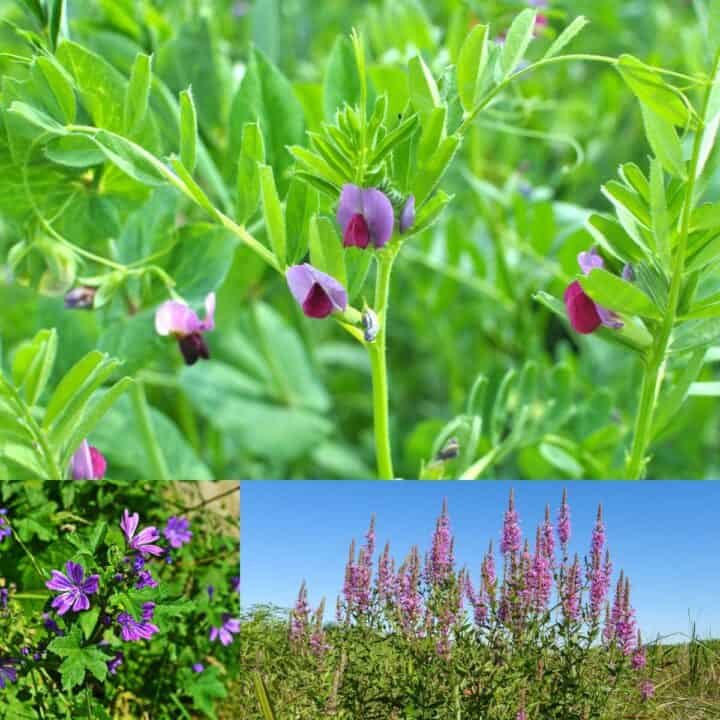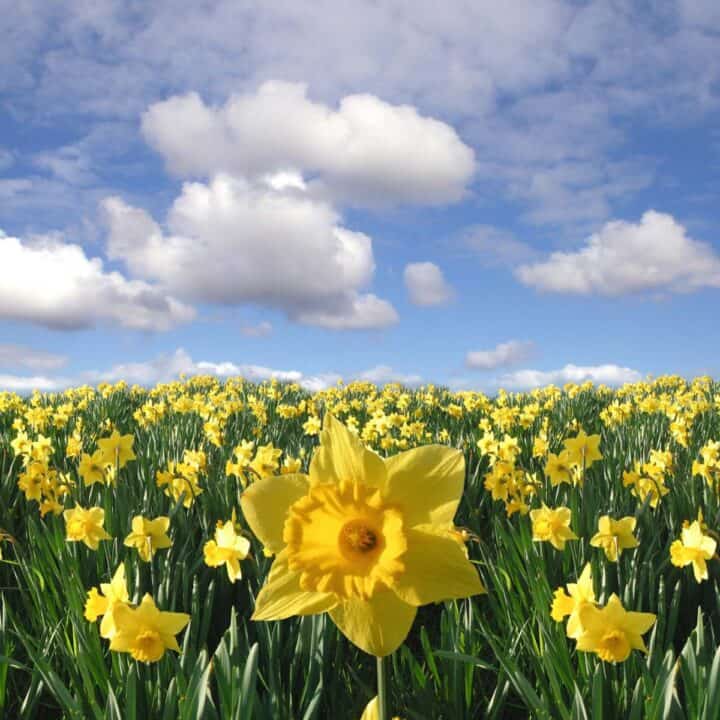Explore the fascinating world of dandelion symbolism and discover the hidden meanings behind this often-overlooked flower. Delve into the significance of this resilient plant, shedding light on its deeper meaning.

Jump to:
Dandelions are a common sight in fields and lawns across the world. Their bright yellow flowers and fluffy white seed heads are often seen as a nuisance, but they hold a much deeper meaning than most people realize. Dandelions have been used for centuries in traditional medicine, and their symbolism and meanings have been revered across many cultures.
Historically, this perennial plant has been used for its medicinal properties. The plant has been used to treat a variety of ailments, including liver problems, digestive issues, and skin conditions. Dandelion root has also been used as a coffee substitute. The flowers, leaves, and roots are entirely edible. The plant's medicinal properties have made it an important part of traditional medicine in many cultures.
The symbolism and meanings attached to dandelions are just as significant as their medicinal properties. In many cultures, dandelions are seen as a symbol of hope, growth, and healing. The flower's unique seed head is often picked and blown to make a wish, spreading the seeds at the same time. This act symbolizes the spreading of hope and positivity. In some spiritual practices, the dandelion is seen as a symbol of clarity, purity, and inner peace.
Key Takeaways
- Dandelions have been used for centuries in traditional medicine, and their medicinal properties have made them an important part of many cultures.
- Dandelions are seen as a symbol of hope, growth, and healing in many cultures. The flower's unique seed head is often picked and blown to make a wish, symbolizing the spreading of hope and positivity.
- In some spiritual practices, the dandelion is seen as a symbol of clarity, purity, and inner peace.

Historical and Cultural Significance of Dandelions
Dandelions have a rich history and cultural significance that spans various continents and cultures. The common dandelion (Taraxacum officinale), of the Asteraceae family, is native to Europe and Asia, but it has spread throughout the world and is now found in almost every continent.
The word "dandelion" comes from the French phrase "dent de lion," which means "lion's tooth." This refers to the jagged, tooth-like shape of the leaves of the dandelion plant. The dandelion name was originally spelled "dent-de-lioun" when it was first used in English in the early 14th century and has since evolved into the modern spelling we use today.
In Europe, dandelions were widely used for their medicinal properties. They were used to treat a variety of ailments, including liver problems, digestive issues, and skin conditions. In addition, they were also used as a diuretic and to stimulate appetite.
In Japan, dandelions are known as "tanpopo" and have been used in traditional medicine for centuries. They were believed to have a cooling effect on the body and were used to treat fever, inflammation, and digestive problems.
In Christianity, dandelions were associated with the Virgin Mary and were sometimes referred to as "Mary's flower." It was believed that the white sap from the stem of the dandelion represented the milk of the Virgin Mary.
In Greek mythology, dandelions were associated with Theseus, the hero who slayed the Minotaur. Legend has it that Theseus used a dandelion to help him find his way out of the labyrinth.
In folklore and mythology, dandelions have been associated with a variety of meanings and symbolism. In some cultures, they are seen as a symbol of hope, resilience, and transformation. The dandelion's journey from bright yellow bloom to seed represents the cycle of life, death, and rebirth. In other cultures, dandelions are associated with the sun and are seen as a symbol of happiness and joy.
Overall, dandelions have played an important role in history and culture. Their medicinal properties, cultural significance, and symbolism have inspired art, literature, and folklore throughout the ages.

Symbolism and Meanings Attached to Dandelions
Dandelions are known for their bright yellow flowers and fluffy seed heads that disperse with the wind. They have been used for medicinal purposes for centuries and have a long history of symbolism and meaning attached to them. Let's explore the various interpretations of dandelion symbolism and meanings.
Color Symbolism
Dandelions come in different colors, with yellow being the most common. Yellow dandelion flowers are often associated with joy, happiness, and the sun's power. White dandelions symbolize purity, innocence, and new beginnings, while pink dandelions represent love, affection, and emotional intelligence.
Dandelion in Art and Literature
Dandelions have been used as a symbol in art and literature for centuries. They often represent the fleeting nature of life and the passage of time. In literature, dandelions have been used as a metaphor for life's fleeting nature, urging readers to appreciate the beauty in every moment.
Interpretations of Dandelion Symbolism
Dandelions symbolize resilience, adaptability, and transformation. They represent joy, happiness, and the cyclical nature of life. Dandelions can also signify power, will, perseverance, endurance, overcoming adversity, strength, determination, courage, and tenacity.
Dandelion and Emotions
Dandelions are often associated with emotions such as joy, hope, happiness, innocence, love, affection, peace, and memories. They represent youthful thoughts and the inner child who forgets to play. Dandelions also symbolize emotional intelligence, trust, and friendship.
Symbolism of Dandelion Life Stages
The dandelion's life stages have different meanings attached to them. The yellow flower represents growth, youth, and youthful thoughts. The seed head represents transformation, new beginnings, and the potential for growth. The dispersed seeds represent freedom, playfulness, and fun.

Dandelion Symbolism in Nature
Dandelions are considered weeds by some, but they are also a natural diuretic and are rich in vitamins and minerals. Dandelions are associated with spring, new growth, and the arrival of warmer weather. They also represent the resilience and adaptability of nature.
Dandelion Symbolism in Life Values
Dandelions symbolize life values such as perseverance, endurance, strength, determination, courage, and tenacity. They represent the power of will and the ability to overcome obstacles. Dandelions also symbolize prosperity, good fortune, luck, wealth, and success.
Symbolism of Dandelion in Good Fortune
Dandelions are often associated with good fortune, luck, and wealth. They are believed to bring good luck and success to those who make a wish on them. Dandelions are also associated with prosperity and wealth.
Interpretations of Dandelion in Dreams
Dandelions can have different interpretations in dreams. They can represent new beginnings, transformation, and the potential for growth. They can also represent emotional intelligence, trust, and friendship. Dandelions in dreams can also signify good fortune, luck, and success.
Symbolism of Dandelion in Superstitions
Dandelions are associated with various superstitions. They are believed to bring good luck, wealth, and success to those who make a wish on them. Dandelions are also believed to have healing properties and are used in folk medicine to treat various ailments.







Sage Scott says
As a military brat, I have a special love for dandelions. Like the flower, military kids travel far and wide as their parent serves our country. We have a motto, bloom where you're planted, and this flower is the perfect symbol!